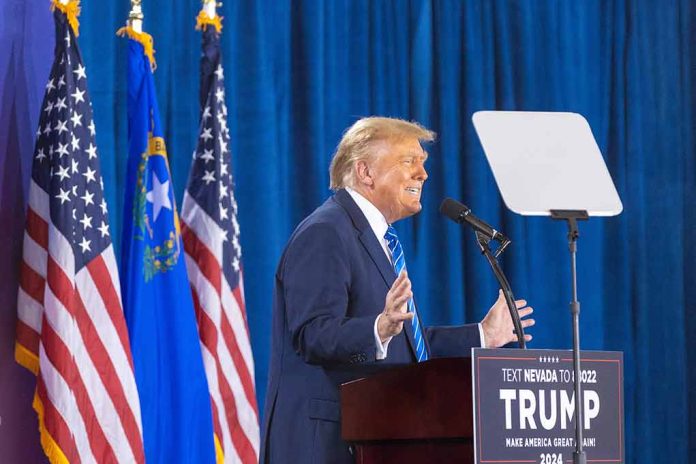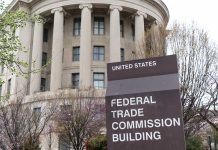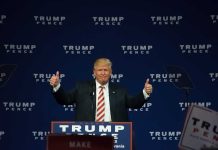
Donald Trump vows to block Japanese acquisition of U.S. Steel if re-elected, citing national economic interests and job protection.
At a Glance
- Trump opposes Nippon Steel’s $14.1 billion deal to buy U.S. Steel
- He claims the acquisition would harm domestic industry and workers
- Both Trump and Biden have expressed opposition to the deal
- The decision could have significant implications for U.S. industry and foreign investment
Trump’s Stance on U.S. Steel Acquisition
Former President Donald Trump has taken a firm stance against the proposed acquisition of United States Steel by Japan’s Nippon Steel. In a move that aligns with his “America First” policy, Trump declared he would block the $14.1 billion deal if he wins the November election. This announcement came after a meeting with members of the Teamsters union in Washington, highlighting Trump’s focus on appealing to blue-collar workers and unions.
Trump’s opposition to the deal is rooted in his economic nationalism and concern for the potential impact on foreign investment in the United States. He emphasized that his administration had previously “saved” the steel industry and criticized the idea of a Japanese company acquiring a major American steel manufacturer.
Nippon Steel rebuffs Trump criticism over U.S. Steel dealhttps://t.co/y3TatYUxFF#KyodoNewsPlus
— Kyodo News | Japan (@kyodo_english) February 7, 2024
Implications for American Industry and Workers
The former president’s stance on this issue resonates with concerns about preserving American ownership of critical industries and protecting domestic jobs. Trump has indicated his intention to take extreme measures to limit trade if re-elected, including the use of tariffs to bring jobs back to the United States. This approach aligns with his broader economic vision of revitalizing American manufacturing and reducing reliance on foreign production.
“We’re going to put tariffs on foreign companies to make cars in America,” Trump stated, emphasizing his desire to boost domestic manufacturing.
Critics from both political parties have urged the Biden administration to prevent the deal, citing potential harm to unionized workers. The United Steelworkers union has expressed concerns about labor agreements and financial transparency, and is currently in discussions with Nippon Steel.
Bipartisan Opposition and Economic Considerations
Interestingly, President Joe Biden has also expressed opposition to the Nippon Steel acquisition, aligning with Trump on this issue. Biden’s stance emphasizes preserving American steel companies and jobs, which is consistent with his agenda to revitalize American manufacturing and support unionized workers.
However, the U.S. Chamber of Commerce has warned that blocking the deal could deter foreign investment and potentially lead to retaliatory actions against U.S. companies abroad. This highlights the complex nature of international business relations and the potential economic repercussions of such decisions.
The Road Ahead
As the debate over the U.S. Steel acquisition continues, the outcome will have significant implications for American industry, workers, and international partnerships. The Biden administration is currently reviewing the acquisition through the Committee on Foreign Investments in the United States, while Trump has not specified exactly how he would block the sale if re-elected.
Nippon Steel’s bid to buy U.S. Steel is now caught in an election year maelstrom as U.S. President Joe Biden and Donald Trump, in the wake of the union’s objections, have both publicly opposed the deal as they vie for blue-collar votes. https://t.co/J5ymtqxdvQ
— The Japan Times (@japantimes) April 11, 2024
The controversy surrounding this deal underscores the ongoing challenges in balancing national economic interests with the realities of global trade and investment. As the political landscape evolves leading up to the November election, the future of U.S. Steel and its potential acquisition by Nippon Steel remains a hot-button issue that will continue to shape discussions on trade, manufacturing, and American economic policy.
Sources:
1.Trump says he’d block Nippon-U.S. Steel deal, dubbing it ‘terrible’
2. Trump pledges to end pollution rule, block steel merger
3. How Biden and Trump’s Tariffs Could Kill an Already Sick Steel Industry














